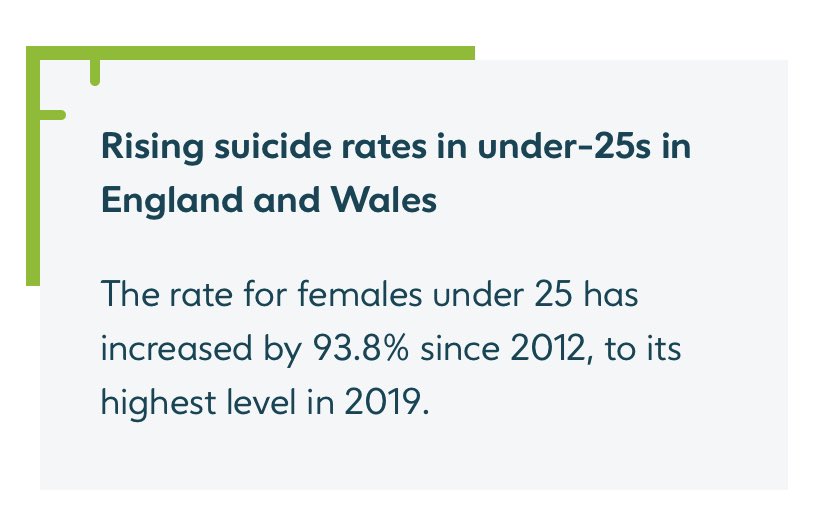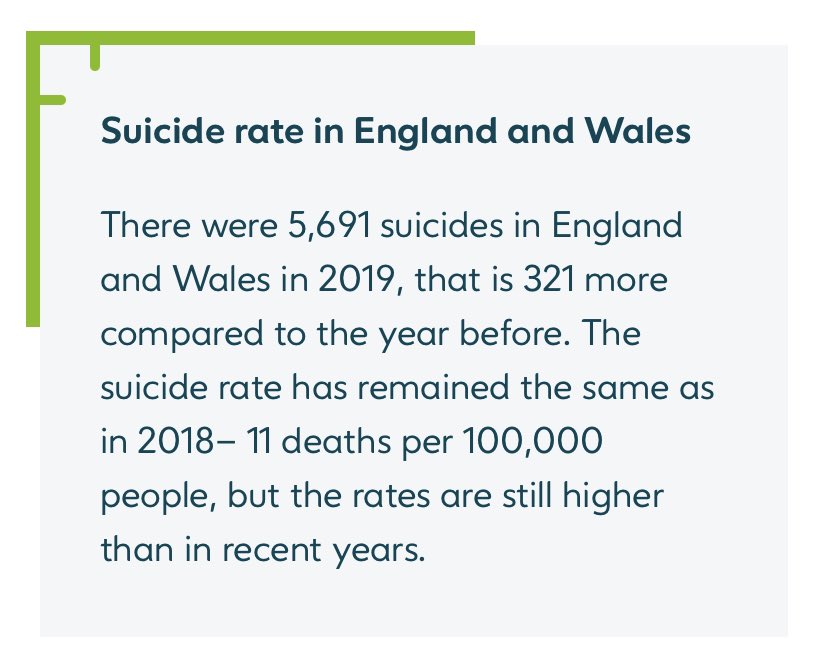Here are some thoughts on #MentalHealthAwareness
I’m going to focus on:
1. Context of our people
2. What we can all do
3. Tips for leaders
4. Convergence with alcohol
5. Neurodiversity
6. The most precious thing: hope.
Let’s thread
I’m going to focus on:
1. Context of our people
2. What we can all do
3. Tips for leaders
4. Convergence with alcohol
5. Neurodiversity
6. The most precious thing: hope.
Let’s thread
Context.
We tend to focus on location, family etc
It’s also good to understand factors from growing up, family, poverty,
exposure to trauma/grief/violence/drug/alcohol misuse,
education completion/setting/needs.
Normalise getting into that detail and what to draw from it.
We tend to focus on location, family etc
It’s also good to understand factors from growing up, family, poverty,
exposure to trauma/grief/violence/drug/alcohol misuse,
education completion/setting/needs.
Normalise getting into that detail and what to draw from it.
2. We all have a role in promoting positive approaches and engagement with #MentalHealthAwareness
- talk about mood
- take time off/out and say so
- create psychological safety to engage & declare challenges
- avoid slurs on mental health creeping in
- use Op SMART tools
BE KIND
- talk about mood
- take time off/out and say so
- create psychological safety to engage & declare challenges
- avoid slurs on mental health creeping in
- use Op SMART tools
BE KIND
3. Leaders.
We have MASSIVE daily impact on #mentalhealth https://abs.twimg.com/hashflags... draggable="false" alt=""> + and -
https://abs.twimg.com/hashflags... draggable="false" alt=""> + and -
- Are you creating unnecessary work based stress?
- Understand cumulative work load, be curious about deadlines and use of time in teams.
- Time spent on well-being is not skiving.
Get a reverse mentor.
We have MASSIVE daily impact on #mentalhealth
- Are you creating unnecessary work based stress?
- Understand cumulative work load, be curious about deadlines and use of time in teams.
- Time spent on well-being is not skiving.
Get a reverse mentor.
3.1. Leaders
Army life is inherently stressful - so where is that displacing or flowing to?
What are people doing to cope?
What are YOU providing to support others?
What ecosystem is there in your Unit? In-person, text etc.
Who are your empathetic leaders?
Do the estimate
Army life is inherently stressful - so where is that displacing or flowing to?
What are people doing to cope?
What are YOU providing to support others?
What ecosystem is there in your Unit? In-person, text etc.
Who are your empathetic leaders?
Do the estimate
4. Alcohol.
The only drug you have to apologise for - for giving up.
Booze and negative thoughts are the worst cocktail around depression, anxiety, coping with stress and sleep.
The statistics on alcohol related deaths are brutal (20yr high)
Flick through suicide facts below
The only drug you have to apologise for - for giving up.
Booze and negative thoughts are the worst cocktail around depression, anxiety, coping with stress and sleep.
The statistics on alcohol related deaths are brutal (20yr high)
Flick through suicide facts below
Preventing convergence of #mentalhealth  https://abs.twimg.com/hashflags... draggable="false" alt=""> and alcohol abuse is a key chain to break.
https://abs.twimg.com/hashflags... draggable="false" alt=""> and alcohol abuse is a key chain to break.
Be curious.
It’s happening in isolation, has been a coping mechanism in lockdown and will accelerate (my view) as we unlock through the summer.
Lift some rocks. See what you find.
Be curious.
It’s happening in isolation, has been a coping mechanism in lockdown and will accelerate (my view) as we unlock through the summer.
Lift some rocks. See what you find.
5. Neurodiversity.
ND is the notion that all brains are different and unique.
We all interact, react, process and relate to information and people in unique ways.
ND has HUGE strengths and benefits but co-morbidities can include depression, low self worth and addiction.
ND is the notion that all brains are different and unique.
We all interact, react, process and relate to information and people in unique ways.
ND has HUGE strengths and benefits but co-morbidities can include depression, low self worth and addiction.
5.1. Who are your ND personnel?
Good question.
Truth is we don’t really know (undiagnosed)
Goes back to understanding context, but also stress both at home and work.
Signpost people.
If you have a ND child parenting is intensely rewarding but also hard.
Very hard. Trust me.
Good question.
Truth is we don’t really know (undiagnosed)
Goes back to understanding context, but also stress both at home and work.
Signpost people.
If you have a ND child parenting is intensely rewarding but also hard.
Very hard. Trust me.
6. Hope.
This shouldn’t be the misery Olympics.
Not is life and being in the Army “something to get through”.
Many treatments for trauma and #mentalhealth https://abs.twimg.com/hashflags... draggable="false" alt=""> focus on recognising and reprocessing negative thoughts and emotions.
https://abs.twimg.com/hashflags... draggable="false" alt=""> focus on recognising and reprocessing negative thoughts and emotions.
Hope is a vital motivator.
This shouldn’t be the misery Olympics.
Not is life and being in the Army “something to get through”.
Many treatments for trauma and #mentalhealth
Hope is a vital motivator.
We tend to focus on the now - and the imminent - almost to the extreme in the Army.
And it’s constant. Tomorrow becomes the next now & so on.
We need a better sense of past - present - and future and where some of our experiences belong.
There has to be a future; a decent one.
And it’s constant. Tomorrow becomes the next now & so on.
We need a better sense of past - present - and future and where some of our experiences belong.
There has to be a future; a decent one.
Now I’m also a realist/pragmatist and people will say trite phrases of:
“hope isn’t a plan”
“Hope isn’t a principle of war”
(We’re not actually in a war BTW)
But having that notion of past-present-future. How to plan and navigate through them is vital to well-being.
END
“hope isn’t a plan”
“Hope isn’t a principle of war”
(We’re not actually in a war BTW)
But having that notion of past-present-future. How to plan and navigate through them is vital to well-being.
END
Alcohol and anxiety: https://alcoholchange.org.uk/blog/2020/10-alcohol-free-ways-to-soothe-your-anxiety">https://alcoholchange.org.uk/blog/2020...

 Read on Twitter
Read on Twitter





